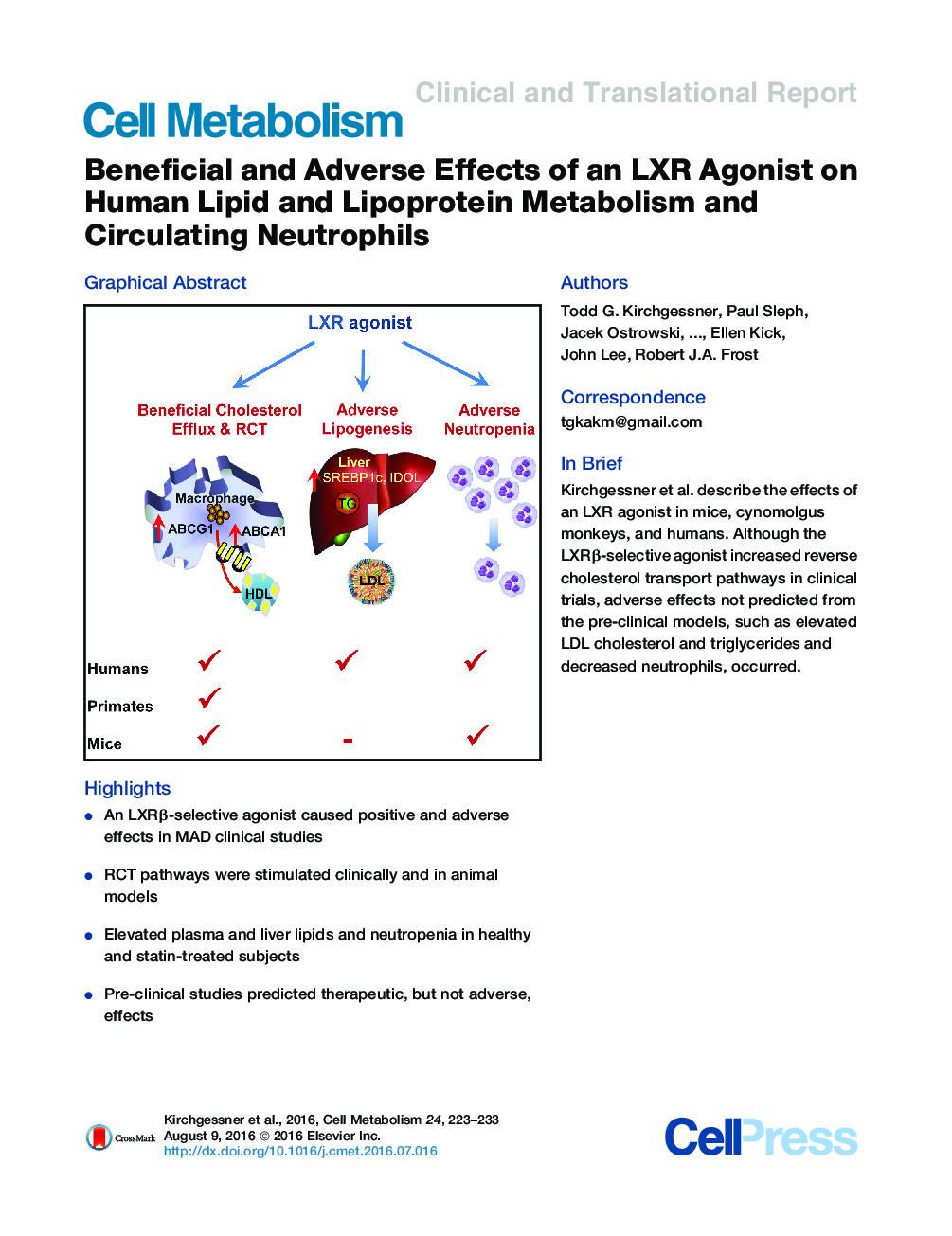| Article ID | Journal | Published Year | Pages | File Type |
|---|---|---|---|---|
| 2792407 | Cell Metabolism | 2016 | 11 Pages |
•An LXRβ-selective agonist caused positive and adverse effects in MAD clinical studies•RCT pathways were stimulated clinically and in animal models•Elevated plasma and liver lipids and neutropenia in healthy and statin-treated subjects•Pre-clinical studies predicted therapeutic, but not adverse, effects
SummaryThe development of LXR agonists for the treatment of coronary artery disease has been challenged by undesirable properties in animal models. Here we show the effects of an LXR agonist on lipid and lipoprotein metabolism and neutrophils in human subjects. BMS-852927, a novel LXRβ-selective compound, had favorable profiles in animal models with a wide therapeutic index in cynomolgus monkeys and mice. In healthy subjects and hypercholesterolemic patients, reverse cholesterol transport pathways were induced similarly to that in animal models. However, increased plasma and hepatic TG, plasma LDL-C, apoB, apoE, and CETP and decreased circulating neutrophils were also evident. Furthermore, similar increases in LDL-C were observed in normocholesterolemic subjects and statin-treated patients. The primate model markedly underestimated human lipogenic responses and did not predict human neutrophil effects. These studies demonstrate both beneficial and adverse LXR agonist clinical responses and emphasize the importance of further translational research in this area.
Graphical AbstractFigure optionsDownload full-size imageDownload high-quality image (184 K)Download as PowerPoint slide
